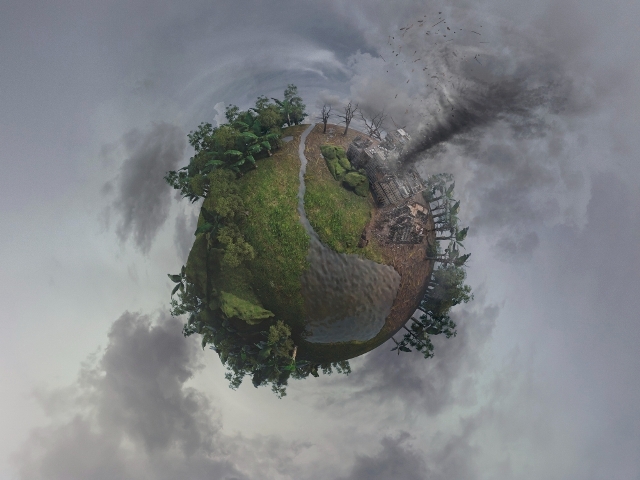Climate Change and Environmental Issues.
Friday - January 10, 2025 4:01 pm ,
Category : WTN SPECIAL

Climate change has become one of the most pressing challenges of our time, that is threatening ecosystems, economies and human livelihoods worldwide. Rising global temperatures, primarily driven by the emission of greenhouse gases like carbon dioxide and methane, have led to unprecedented shifts in weather patterns. Extreme weather events such as hurricanes, floods, droughts and wildfires are becoming increasingly frequent, endangering lives and properties.
One of the key environmental issues fueling climate change is deforestation. Trees act as carbon sinks, absorbing carbon dioxide and regulating temperatures. However, large scale deforestation for agriculture, urbanization and industrial purposes has significantly reduced forest cover, exacerbating global warming. Similarly, the reliance on fossil fuels for energy production continues to release harmful emissions into the atmosphere, further intensifying climate challenges.
The impact of climate change extends to the natural world, with rising sea levels threatening coastal habitats and communities. Additionally, the warming of oceans disrupts marine ecosystems, endangering species like coral reefs, which are vital for biodiversity. Human health is also at risk, with the spread of diseases like malaria and dengue increasing in warmer climates.
To combat climate change, collective action is essential. Transitioning to renewable energy sources, such as wind, solar and hydroelectric power, can significantly reduce emissions. Reforestation and sustainable land management practices can help restore ecosystems and combat soil degradation. Moreover, raising awareness and promoting eco friendly habits, such as reducing waste, conserving water and adopting sustainable consumption, are steps individuals can take to contribute to the solution.
While the challenges posed by climate change are scary, they also present opportunities for innovation and global cooperation. By prioritizing sustainability and providing a sense of shared responsibility, humanity can work toward a future that is resilient, equitable and harmonious with nature.
One of the key environmental issues fueling climate change is deforestation. Trees act as carbon sinks, absorbing carbon dioxide and regulating temperatures. However, large scale deforestation for agriculture, urbanization and industrial purposes has significantly reduced forest cover, exacerbating global warming. Similarly, the reliance on fossil fuels for energy production continues to release harmful emissions into the atmosphere, further intensifying climate challenges.
The impact of climate change extends to the natural world, with rising sea levels threatening coastal habitats and communities. Additionally, the warming of oceans disrupts marine ecosystems, endangering species like coral reefs, which are vital for biodiversity. Human health is also at risk, with the spread of diseases like malaria and dengue increasing in warmer climates.
To combat climate change, collective action is essential. Transitioning to renewable energy sources, such as wind, solar and hydroelectric power, can significantly reduce emissions. Reforestation and sustainable land management practices can help restore ecosystems and combat soil degradation. Moreover, raising awareness and promoting eco friendly habits, such as reducing waste, conserving water and adopting sustainable consumption, are steps individuals can take to contribute to the solution.
While the challenges posed by climate change are scary, they also present opportunities for innovation and global cooperation. By prioritizing sustainability and providing a sense of shared responsibility, humanity can work toward a future that is resilient, equitable and harmonious with nature.



